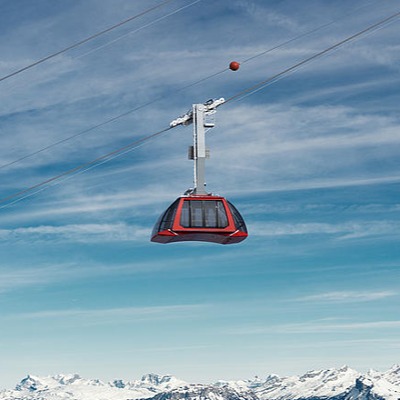Expert Forum "Klima.Schnee.Sport" Issues Second Transnational Position Paper "Winter Sports And Climate Change"

The expert forum "Klima.Schnee.Sport", consisting of 14 climate and sports research institutions from Germany, Austria and Switzerland, published the current state of research on the topic "Winter sports and climate change". It is an updated version of the position paper from 2019, defines reliable findings and knowledge deficits and contains proposals for strategic approaches. The aim is to support long-term planning for future sports and tourism generations.
In 2019, the expert forum "Klima.Schnee.Sport" published the first position paper on the effects of climate change on winter sports with the collaboration of 14 climate and sports research institutions from Germany, Austria and Switzerland.
From Austria, GeoSphere Austria (then the Central Institute for Meteorology and Geodynamics), the Institute for Interdisciplinary Mountain Research of the Austrian Academy of Sciences, the Institute for Geography at the University of Innsbruck and the Tirol Snow Center at the Management Center Innsbruck were involved.
Optimal measures for nature, people and the economy
An updated version has been available since this winter. "Since the publication of the first position paper in 2019, great progress has been made in climate research and many statements can now be made with even greater certainty," says Marc Olefs, who heads the climate impact research department at GeoSphere Austria, " Our concern is to lay the basis for objective, interdisciplinary cooperation in order to take long-term optimal measures for nature, people and the economy. Based on currently planned global climate protection measures (as of the end of 2022), the annual mean temperature in the Alpine region will most likely increase by at least another two degrees by the end of the century. Every further future emission will continue to heat up the climate.”
Measures in the interest of snow sports
"It is in the long-term interest of snow sports to implement science-based goals for climate protection and adaptation in all sectors, in the joint responsibility for future sports generations," says Ralf Roth, initiator of the DA-CH network "Klima.Schnee.Sport" from Deutsche Sporthochschule Köln, “We also support the United Nations’ Sport for Climate Action /#racetozero initiative.”
Natural fluctuations and long-term trend
When analyzing snow data, it is important to differentiate between natural fluctuations, for example from year to year or over several years, and the long-term trend caused by human-induced climate change. "There can still be short-term phases with a lot of snow," says climate expert Olefs, "but in the long term the snow and also the maximum snow depths will decrease, especially at low and medium altitudes, below about 1500 meters above sea level. We see that in the measurements of the last decades and that is also shown very clearly by the calculations for the future with regional climate models.”
More rain - uncertainty for snowmaking is increasing
The latest climate scenarios show robust signals regarding an increase in winter precipitation in the Alpine region and the intensification of short-term precipitation extremes and thus also stronger individual snowfalls. Viewed over an entire winter season, however, warming dominates, so that the average and maximum amount of snow is likely to decrease in the long term at all altitudes. The uncertainty as to whether a snow cover that can be used for snow sports can be maintained throughout the entire season with technical means is therefore increasing.
Strategic approaches and recommendations
The expert forum "Klima.Schnee.Sport" sees seven important points for the entire winter sports industry in order to actively meet the challenges of man-made climate change.
These include, among other things
- the creation of CO2 balances in all relevant sectors as a potential analysis to minimize the harmful climate impact and as a basis for business decisions,
- the implementation of location-related interdisciplinary vulnerability analyzes for sustainable strategy development and
- the implementation of sustainable technological and organizational innovations as well as the diversification of the offers. To secure and further develop winter sports against the background of the unavoidable effects of climate change in the near future.
- Knowledge deficits and research needs
- It is also important for the "Climate.Snow.Sport" expert forum to define subject areas in which there is still a need for research, for example:
- There are indications that climate change is altering the atmospheric circulation and that certain weather patterns may last longer (longer precipitation periods, longer dry periods).
- Furthermore, there is a need for research on questions of the regional development of the climate at the different altitudes, especially in the case of precipitation, where the data is not yet as reliable as for the temperature. Another example are local effects that can cause sudden changes (tipping points), such as the snow line.
- There is also still potential for improvement in the area of snow management, for example through the development, evaluation and application of modern methods such as automated monitoring, modelling, remote sensing, data assimilation and the use of artificial intelligence.
Contributors from Germany, Switzerland and Austria
The institutions from Germany involved in the second transnational position paper "Winter Sports and Climate Change" were the initiator of the Foundation for Safety in Skiing and the German Sport University Cologne (Institute for Outdoor, Sport and Environmental Research), the German Weather Service (Department of Hydrometeorology and Regional Climate Office Munich), the Institute for Meteorology and Climate Research of the KIT Campus Alpin, the University of Augsburg and the Karlsruhe Institute of Technology.
The Swiss organizations involved were the Federal Office for Meteorology and Climatology MeteoSwiss and the WSL Institute for Snow and Avalanche Research (SLF).













